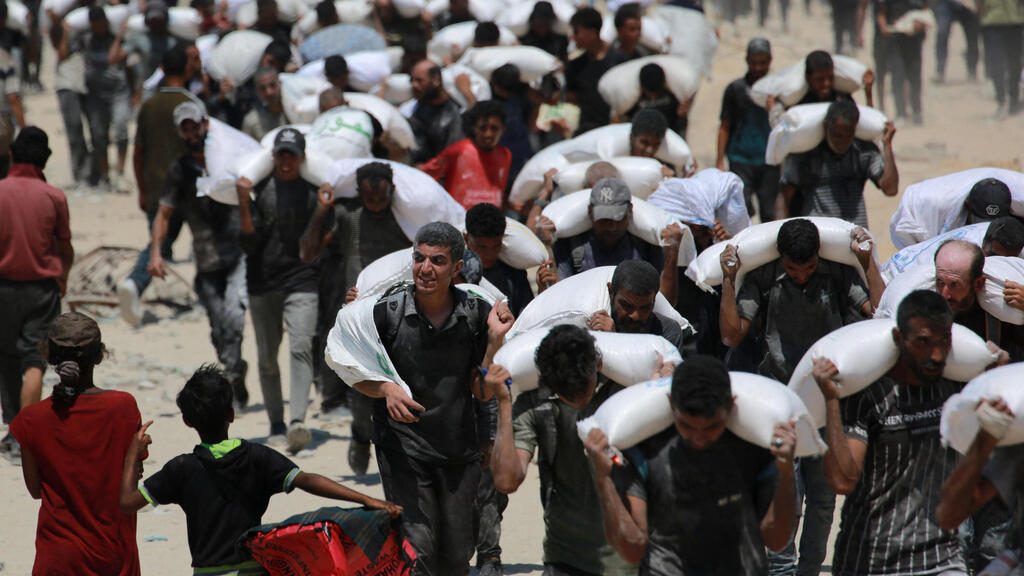Truck carrying aid is looted in Gaza
Substantial food and aid had been entering the enclave. But the Israeli government’s shift in strategy that month marked a dramatic turn: it ended the cease-fire, launched Operation Gideon’s Chariots to pressure Hamas into a hostage deal, and assumed direct control over the flow of aid into Gaza.
By early April, internal metrics from the Israeli defense establishment began signaling rising levels of distress inside Gaza, echoing warnings from international aid organizations. Still, those red flags were often dismissed.
One senior Israeli minister described the attitude toward Maj. Gen. Rassan Alian, the Coordinator of Government Activities in the Territories (COGAT), as condescending: “They said he was just waving red flags, while simultaneously insisting there was no famine,” the minister said.
“There was always a sense that things were on the edge,” one senior official said. “They mocked Rassan Alian, but we knew the situation was severe.” According to multiple sources, the government was aware of the risk of a mass hunger crisis and acted not for strategic reasons but out of fear of political fallout, especially from far-right ministers like Itamar Ben Gvir and Bezalel Smotrich.
2 View gallery


Bezalel Smotrich, Benjamin Netanyahu Israel Katz, Itamar Ben-Gvir
(Photo: Shalev Shalom)
By late June and early July, the European Union (EU) had issued direct warnings to Israel, threatening to suspend its Association Agreement over the deteriorating conditions in Gaza, a threat that has largely gone unnoticed in Israeli public discourse. Inside Israel, the prevailing belief remains that a hostage deal will soon bring a new ceasefire, and with it, renewed aid flow.
A future commission of inquiry may one day examine how Israel sleepwalked into both the October 7 disaster and the resulting humanitarian crisis in Gaza, some observers said. Despite repeated warnings from the Biden administration and even early concerns voiced by Trump officials in May, Prime Minister Benjamin Netanyahu failed to make decisive choices. Paralyzed by political pressure from the far right, he stalled, reversed course, and missed opportunities.
Netanyahu led the way to the historic achievement of the despicable Hamas terror group that was rewarded by the suffering of its people as long as it harmed Israel, Israelis and the hostages held in its tunnels. But more urgent still is the suffering of innocent civilians in Gaza and every child there is innocent.







